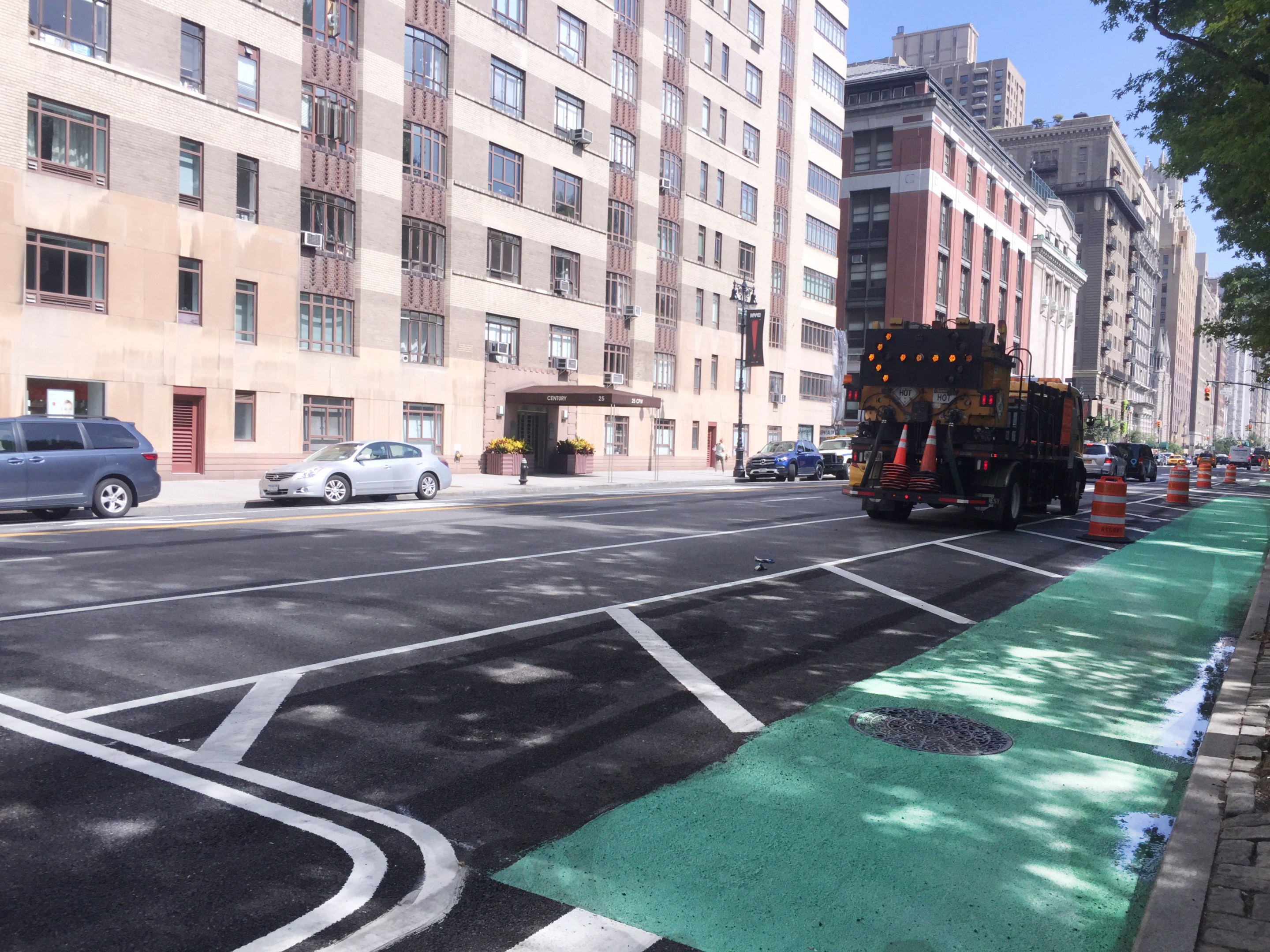The city was within its legal rights to turn a painted bike lane on Central Park West into a protected one, a Manhattan judge ruled Thursday as she dismissed a condo building's lawsuit that sought to block a project undertaken after an Australian cyclist was run over and killed last year.
The suit by the Century Condominium had charged that the city's decision to create a protected bike lane required a formal environmental review because it would cause such significant impact on the neighborhood in the form of traffic and increased pollution as drivers circle for longer amounts of time seeking harder-to-find parking spaces.
But Justice Lynn Kotler disagreed, ruling that since Central Park West already had a painted bike lane, the city's plan to rejigger the street, and remove 400 curbside spaces for cars, did not require the extended environmental review process since it wouldn't have any harmful environmental impacts.
"The challenged determination at issue can only be characterized as a reorganization of parking and a pre-existing bicycle lane. Respondents' determination that such an action will not have any significant adverse environmental impacts is rational and otherwise supported by the record," Kotler wrote.
The DOT had argued that the bike lane installation was not only a routine exercise of its power, but a response to a local community board demanding safer streets. The push for a protected bike lane on the Central Park-adjacent stretch of road became especially determined after cyclist Madison Jane Lyden was killed by a drunk garbage truck driver in August 2018, when she had to swerve around a cabbie who had pulled into the existing unprotected Central Park West bike lane between 66th and 67th streets.
As such, DOT Commissioner Polly Trottenberg said she was "grateful" for the ruling because it will allow "our critical safety project along Central Park West to continue moving forward."
"As we have seen so many times under Vision Zero, protected bike lanes save lives," she added. "The lane along Central Park West is now complete up to West 77th Street, and we expect to finish installing the lane up to West 110th Street in the spring.”
Kotler also smacked down the plaintiffs' suggestion that the entire "Green Wave" initiative — which calls for more protected bike lanes across the city — required state approval under the State Environmental Quality Review Act. "The court agrees with [the city] that the plan is not an action for purposes of SEQRA, but merely a policy initiative," Kotler wrote, calling the CPW foes' argument that the bike lane was an illegal segmentation from the Green Wave "meritless."
The DOT's latest victory in court affirms, for the third time in a month, that the agency really does have the power to determine how traffic flows on city streets. Judges have reached similar determinations in lawsuits against a bus lane on Fresh Pond Road in Queens and a road diet on Morris Park Avenue in the Bronx.
A statement from Transportation Alternatives' Executive Director Danny Harris emphasized the string of victories for safe streets and transit projects in what he also called "meritless" lawsuits, and urged the city to keep pushing for rational solutions that brought more equitable transit options.
"In order to rise to the challenges our city faces, from chronic traffic congestion, inequitable transit options, and a public health crisis wrought by car and truck traffic, our city must continue to make rational transportation policy — prioritizing the movement of New Yorkers by walking, biking, and public transit."
This is a breaking story that will be updated. For now, here is the judge's ruling:
The Residential Board v the Residential Board DECISION ORDER on 72 by Gersh Kuntzman on Scribd






